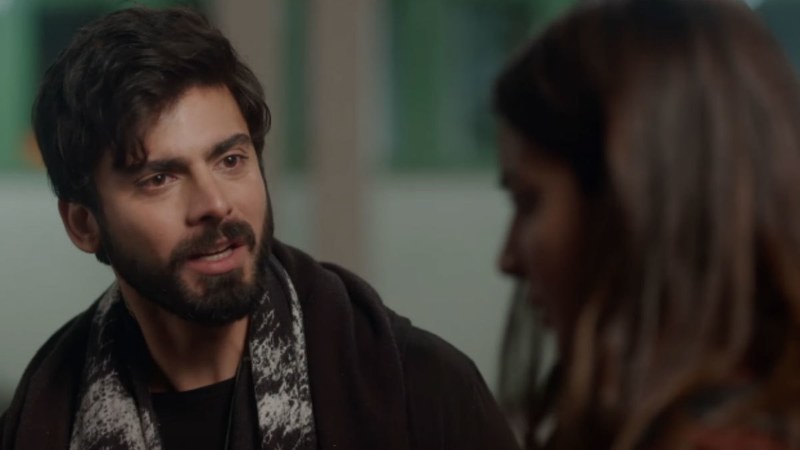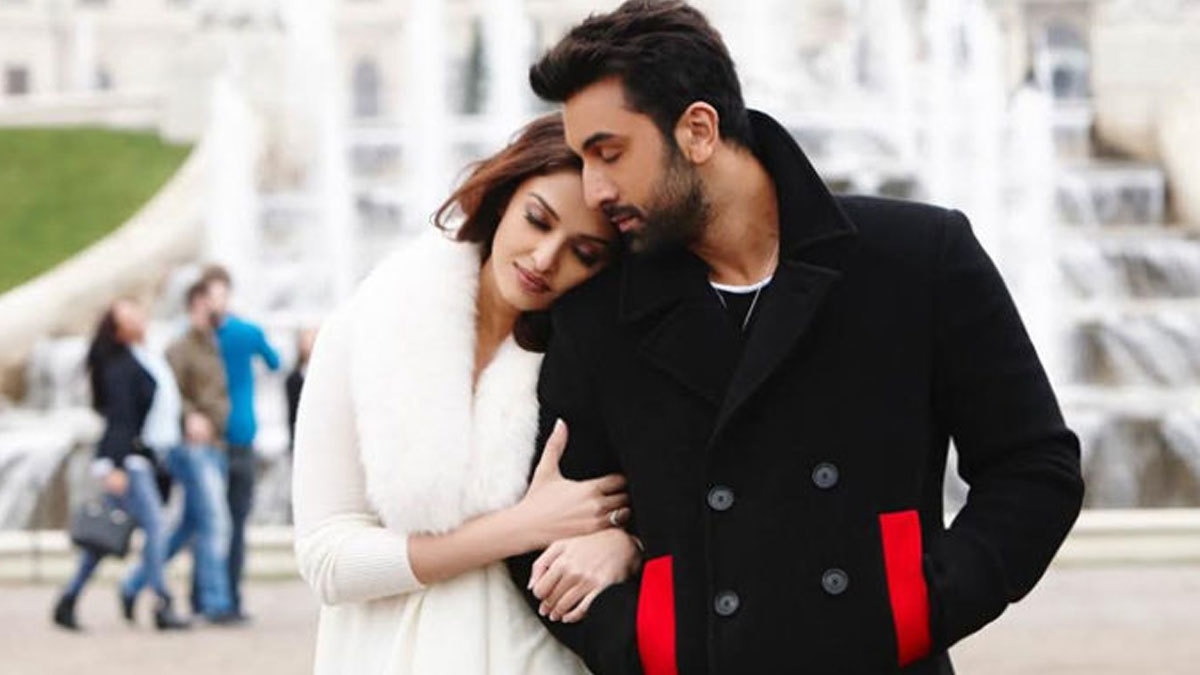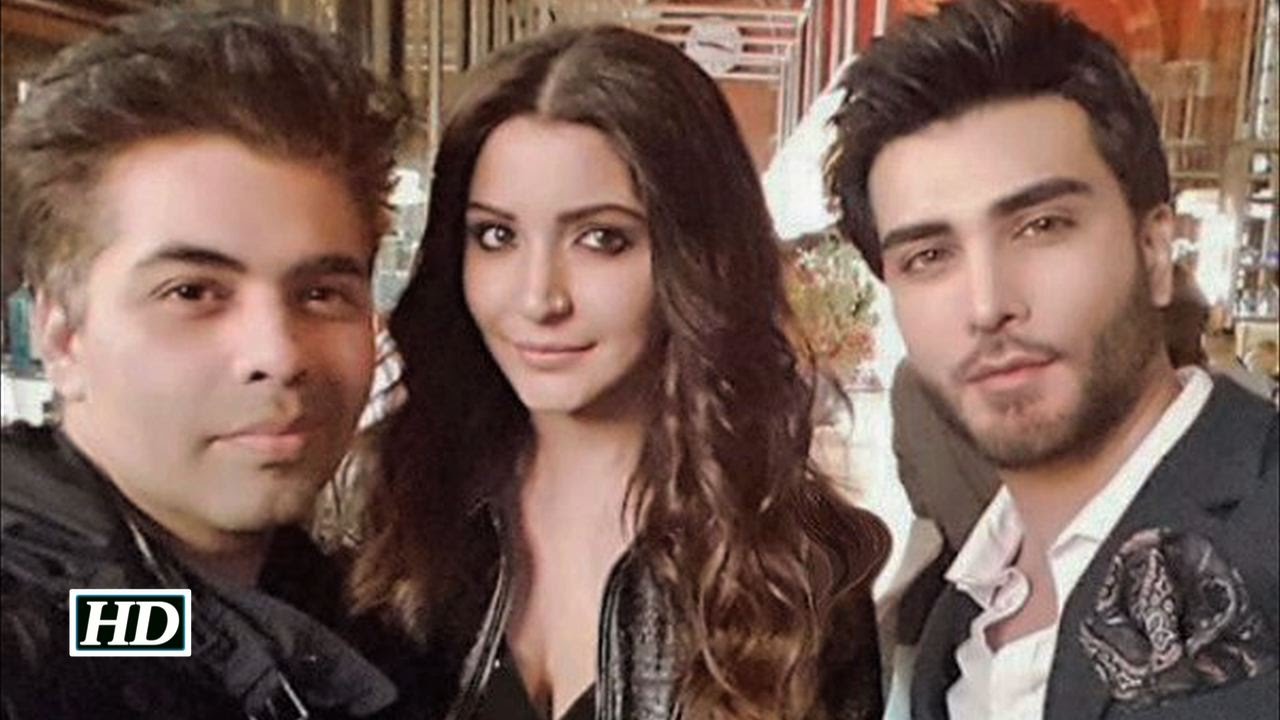Sadaf Haider/Dawn
At long last, it’s finally here: the Karan Johar flick Ae Dil Hai Mushkil that’s been stirring controversy across India and Pakistan due to the fact that it features Pakistani actors (namely Fawad Khan).
Unfortunately, by ‘here’ I mean the United States, where I watched the film. Ae Dil Hai Mushkil is still not out in Pakistan, even after much back and forth.
So for now, you’ll have to live vicariously through me to find out if this film is worth the hype.
As with any Karan Johar Movie, watching Ae Dil Hai Mushkil requires us to surrender all the inconveniences of religion, family and tradition at the ticket booth.
We know what to expect: a lot of good looking people with similar generic values enjoying a privileged lifestyle without ever holding down a job… yet somehow, despite this, we can see ourselves in their hopes and dreams.
That connection is what makes Karan Johar’s films so successful.
Ranbir Kapoor is Ayan, a non-resident Indian floating through an MBA when he really wants to be a singer (oh, and he has a private jet in the garage). He has a gold digger for a girlfriend (played by Lisa Hayden), something he only picks up on when he meets Anoushka Sharma’s Alizeh.
Alizeh and Ayan become fast friends and this relationship is the heart of this film, asking the question: what makes us love someone and what makes us fall in love with someone? “Mohabbat main junoon hai dosti main sakoon hai,” says Alizeh, and there are no boundaries (except actual sex) in this ultra-cool couple’s “dosti”, where sharing a spoon, a hug, a room and even a bed are all on the same level and not supposed to arouse any feelings, except of course until they do.

The first half of the film moves at a snappy pace, holding the audience’s interest in anticipation of deeper things to come. However, the second half doesn’t bring the expected pay off, spinning into a long, winding exploration of Ayan’s feelings that give it a surprisingly TV drama-like feel.
The leap to an epic, tortured romance between Ayan and Alizeh doesn’t work because the other end of the equation — the relationship between Alizeh and her first love Ali (played by Fawad Khan), is left completely unexplored. Why does she love Ali? Why did she leave him? How exactly is he ‘tabahi’ for her? To make it clear, it is obvious that this story is very much about Ayan and his relationship with Alizeh, but the story needed a few scenes of Alizeh and Ali as a counterpoint to the main romance to raise it above the superficial ‘guy-cannot-get-over-being-friend-zoned’ narrative.
It’s no huge surprise that Fawad Khan looks fabulous onscreen and his scenes bring much needed freshness and life to this cliché-ridden story.
Some of the best scenes are of Alizeh and Ali’s wedding, brought wonderfully to life in the song ‘Cutie Pie’. In fact, the only scenes which actually invoke the pathos the writers aimed for are of Ranbir as he walks out of the party, unable to face the fact that he’s lost Alizeh.
Fawad reappears towards the film’s end and again the audience is left wanting more. As to the other half of the much talked about Pakistani contingent, Imran Abbas looks great on screen as Dr. Faisal and provides an amusing catalyst to Alizeh and Ayan’s friendship. According to Abbas’s Facebook, a few of his scenes were cut and it’s anyone’s guess as to whether appeasement or necessity was the reason.
As this is a Karan Johar movie Lucknow, Vienna and Paris are all a hop, skip and a jump away from the protagonists — just like their relationships! Ayan seeks solace in Saba, a divorced poet played by Aishwarya Rai who despite the intimate nature of her scenes seems untouchable and remote till her meeting with Alizeh.

A dinner party scene in Vienna is one of this film’s strongest moments; this is where all three leads learn that their veneer of sophistication cannot protect them from the pain of their emotions. In the end they are just like the rest of us in search for that elusive feeling of being the “only one” for someone. This is where the script actually succeeds, holding a mirror up to Ayan.
But what should be a point of revelation ends up lost in the mish-mash of his emotions.
Shah Rukh Khan’s brief appearance as Aishwarya’s ex-husband Tahir is another example of the way the film’s characters are always yearning for someone but are unable to make enough of a commitment to hold on to that someone.
Tahir goes on to give Ayan some spectacularly useless advice about unrequited life, because speaking poetic Urdu means never having to move on. The strangest thing about Tahir and Ali too is their complete lack of jealousy. They seem immune to the raw emotions Ayan is struggling with. It’s as if for them, a little philosophizing can soothe their broken hearts, so it’s not surprising that audience isn’t moved either.
Ranbir gives a fine performance and shines in some of ADHM’s more emotional scenes but after a while the concentration on his character’s feelings becomes tiresome. He is so good at playing the sweet, nice guy who has something to learn, but this is nothing new for him.

Anoushka Sharma looks beautiful and gives a simply fabulous performance as a woman who has trouble being ‘present’ — she is always somewhere else in spirit. Her love for old Bollywood songs, the references to old movie dialogues that she and Ayan bond over; all point to her disappointment that reality cannot match the fierce intensity of celluloid. Ranbir and Anoushka look great together but despite their closeness the vibe is always platonic compared to her scenes with Fawad.
Lisa Hayden as the ditzy “gold digger” steals the show with her complete lack of self-awareness and you get the feeling she may be the only person onscreen who actually knows what she wants. The scenes of her much practiced “Salamalaikum” and “what, no Namaste for us?” were sharp and funny reminders of the at-times willful misunderstandings that have scarred this film’s release.
In the original story Ali, Alizeh, Faisal and Saba’s characters were supposedly Pakistani, but had to be changed to Indian Muslims from Lucknow because of the threatening rhetoric coming from Indian nationalists.
It really seems a fuss about nothing when there is nothing particularly “Pakistani” about any of these roles but to be fair apart from a bhajan on his iPhone there was little to mark Ayan as an Indian either. Representations of Muslims in Bollywood sadly veer from caricatures saying Subhanallah, with shawl glued to their shoulders as in the recent Dilwale to the generic girl with a Muslim name we see in Alizeh.
In the end I wonder if the Hindu nationalists demanding a ban on ADHM actually did the makers a favor by stirring up so much controversy.
On the flipside, if a better product was killed on the editing floor — well it’s a shame that what could have been an iconic movie, connecting people across borders, has been reduced to a “time pass”.
It would be easy enough to criticize Karan Johar for not standing up to his bullies but at least he made the effort to reach out and be inclusive. Hopefully this film will be shown in Pakistan, if for no other reason than that it includes the hard work of Pakistani actors and singers. The better reason would be that we cannot let empty political rhetoric drown out the voices of peace and understanding.
Ae Dil Hai Mushkil lacks the emotional power of Karan Johar’s previous films like Kabhi Khushi Kabhi Ghum, Kuch Kuch Hota Haior My Name Is Khan but is good enough to watch once for the good music and the great performances put in by the entire cast.
Sadaf Haider is a film and TV contributor to Dawn




























































